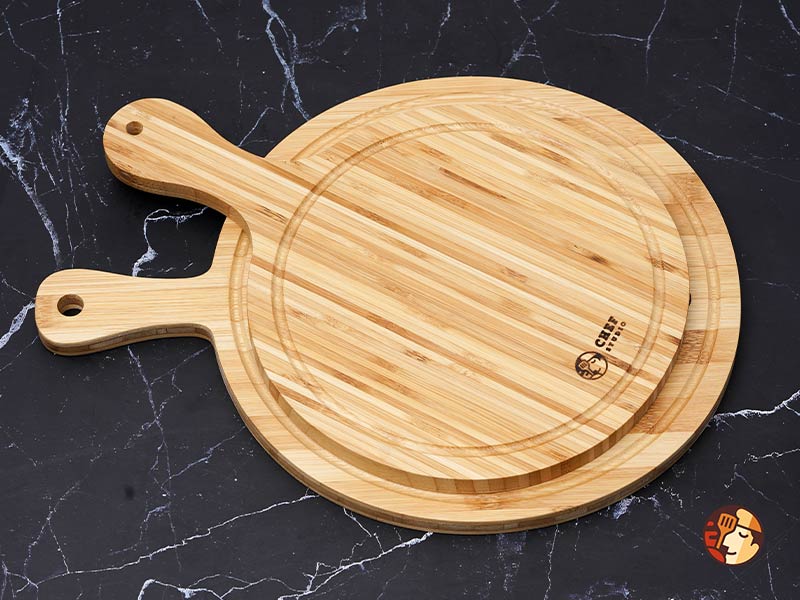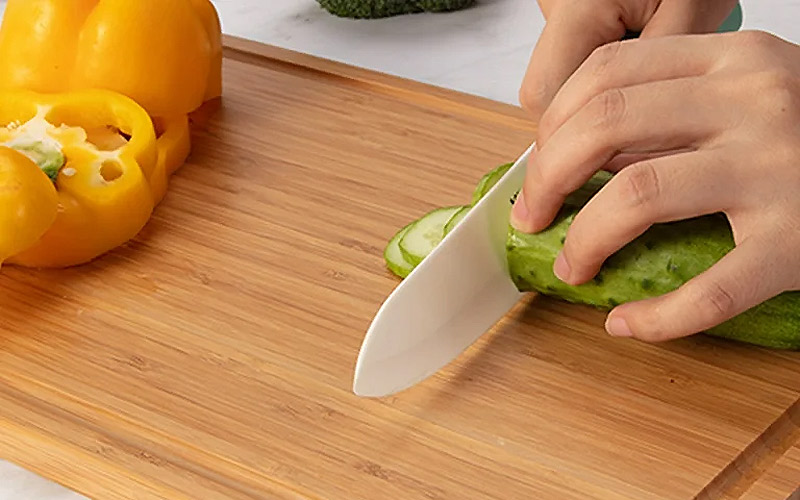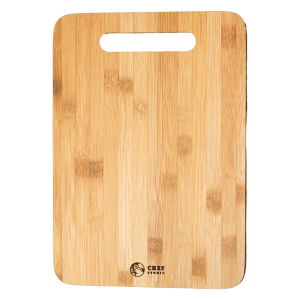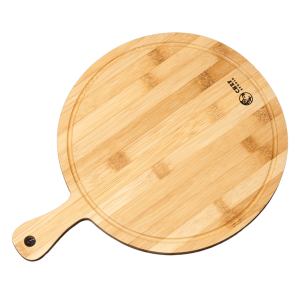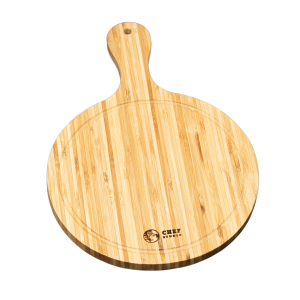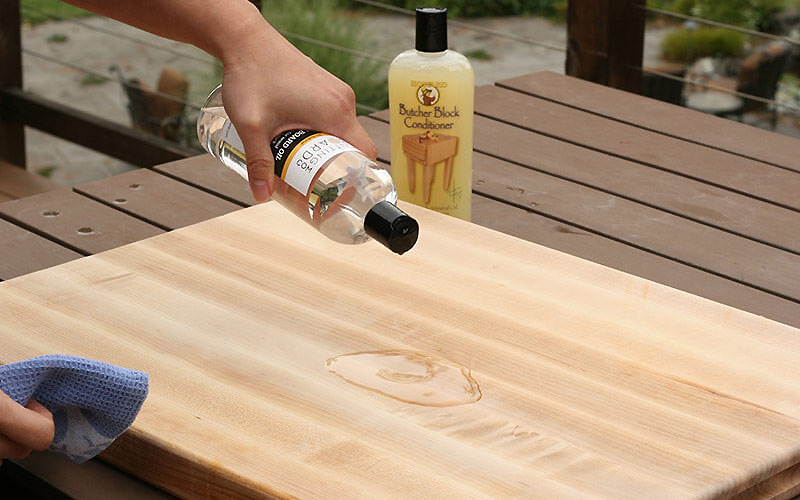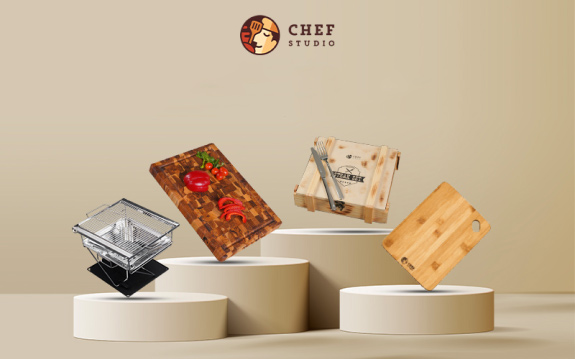Are bamboo cutting boards bad for knives?
When choosing the right cutting board, many home cooks and professional chefs alike wonder: Are bamboo cutting boards bad for knives? Known for their durability and eco-friendliness, bamboo boards are increasingly popular in modern kitchens. However, because bamboo is harder than many traditional wood types, there’s a valid concern about how it affects knife edges.
In this article, Chef Studio explores whether bamboo cutting boards are truly knife-safe and how to maintain both your board and blades for long-term use.
Characteristic of Bamboo as a Material
Bamboo may look and feel like wood, but it’s a type of fast-growing grass. Despite this, it shares many properties with hardwoods, especially in terms of strength and density. One of bamboo’s standout features is its sustainability. As a rapidly renewable resource that grows back quickly without the need for replanting, it’s an eco-friendly alternative to traditional wood materials.
In the kitchen, bamboo is prized for its durability and hardness, which makes it an ideal candidate for cutting boards. However, this same hardness can be a double-edged sword. While bamboo boards resist cuts and dents better than softer woods, their density may be slightly harsh on knife edges over time.
However, this same resilience raises the question again: Are bamboo cutting boards bad for knives due to their firmness? Let’s explore the facts.
Are Bamboo Cutting Boards Bad For Knives?
Bamboo cutting boards are known for their strength and eco-friendliness, but some home cooks and professionals wonder if their hardness could harm knives over time. Understanding how bamboo’s surface interacts with your blades is key to choosing the right board.
The Hardness of Bamboo Compared to Knife
Bamboo is generally quite hard, ranking high on the Janka hardness scale. While this durability is great for long-lasting cutting boards, it can potentially cause knife edges, especially those made from softer stainless steel, to dull faster than when used on softer surfaces like plastic or rubber. That said, this dulling is usually minimal and greatly depends on the quality of both the knife and the board.
How Bamboo Affects Knife Edge Retention
Most bamboo cutting boards are constructed from strips of bamboo glued together with the grain running vertically. This vertical grain construction is softer on knives than materials like glass or stone, which are significantly harsher. So, while bamboo is harder than some woods, it’s still a knife-friendly option, especially when properly maintained.
Hygiene and Durability Benefits
Another factor in this discussion is hygiene. Bamboo is less porous than many hardwoods, meaning it resists moisture and is less likely to harbor bacteria. If you’re still wondering, “Are bamboo cutting boards bad for knives?”, remember that they also offer added benefits in terms of cleanliness and long-term durability.
Final Thought: Are Bamboo Cutting Boards Good For Knives?
So, are bamboo cutting boards bad for knives? Not necessarily. While bamboo is harder than some materials, its construction and surface are generally gentle enough to maintain your knife edges with minimal impact, especially when paired with proper knife care habits and a high-quality knife.
Caring for Bamboo Cutting Boards and Knives
Besides understanding the answer to the question, “Are bamboo cutting boards bad for knives?”, it’s equally important to focus on how to properly care for both your bamboo cutting board and your kitchen knives.
Even though bamboo is often considered a knife-friendly material, neglecting regular care can lead to faster wear on both your blades and your board, diminishing the quality of your cooking experience over time.
Start by maintaining your knives with consistent sharpening and honing. A sharp knife is safer and more efficient than a dull one. When knives lose their edge, they require more pressure to cut, which can increase the risk of slipping and also put unnecessary stress on the bamboo surface. Keeping your knives sharp allows them to glide effortlessly through ingredients, minimizing impact on your cutting board and preserving the integrity of both tools.
Next, consider how you treat your bamboo cutting board. To keep the surface smooth, supple, and crack-free, it’s essential to oil your bamboo cutting board with a food-grade mineral oil at least once a month or more often if you live in a dry climate. This simple step locks in moisture, prevents the board from drying out, and helps maintain a surface that’s gentle on your knife blades. Avoid using vegetable or olive oils, as they can go rancid over time and leave unpleasant odors.
Proper cleaning is another key aspect of extending the lifespan of your board and protecting your knives. Always hand wash your bamboo cutting board with mild soap and warm water, then dry it thoroughly with a towel. Never soak it in water or run it through the dishwasher, as excess heat and moisture can cause warping or cracking.
In conclusion, are bamboo cutting boards bad for knives? Not necessarily. While bamboo is harder than some woods, it’s still a safe and effective surface when used with sharp, well-maintained knives. By regularly honing your blades and conditioning your board with food-safe oil, you can prevent premature dulling and enjoy a long-lasting, eco-friendly cutting experience. With the right care, bamboo cutting boards strike a solid balance between durability and knife safety.

